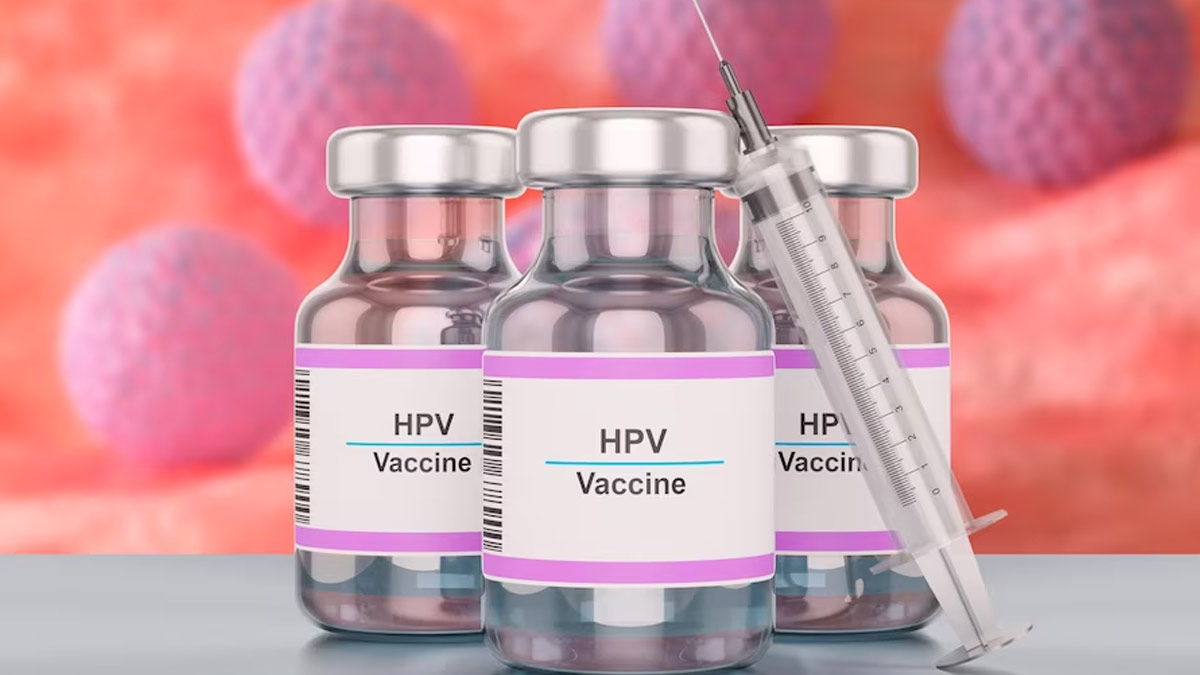
Human Papillomavirus (HPV) are a group of viruses that can affect any part of the body, including the genitals. Currently, there are more than 200 types of HPV, of which over 40 viruses are transmitted by direct sexual contact. HPV infection is associated with about 5% of all cancers worldwide, with an estimated 6.256 lakh women and 69.4 thousand men diagnosed with HPV-related cancer each year, says the World Health Organization (WHO), adding that cervical cancers account for 93% of HPV-related cancers in women.
Table of Content:-
Role Of HPV Vaccine

Dr Sonamm Tiwari, Consultant Gynaecologist and Obstetrician, Hiranandani Hospital Vashi-A Fortis Network Hospital says, "HPV vaccines provide a safe way for the body to sensitise the immune system against some HPV strains, meaning if a person later becomes infected with these strains of the virus, the body can be more efficient at eliminating them."
Also Read: HPV Symptoms That All Women Should Be Aware Of
According to Dr Chhavi Gupta, Consultant of Infectious Disease, Fortis Hospital, Noida, two types of HPV vaccines are currently available: quadrivalent HPV vaccine (Gardasil 4) and nano valent (Gardasil 9). While Gardasil 4 has an efficiency against the four most oncogenic types of HPV directed against HPV types 6, 11, 16, and 18, Gardasil 9 has a broader coverage directed to protect against HPV types 6, 11, 16, 18, 31, 33, 45, 52, and 58, she explains.
When Is The Best Time To Get An HPV Vaccine?

As per the US Center for Disease Control and Prevention's (CDC) Advisory Committee on Immunization Practices (ACIP) recommendations, HPV vaccine recommendations are as follows:
Children and adults aged 9-26: HPV vaccination should be routinely recommended at age 11 or 12; vaccination can be started at age 9. HPV vaccination is recommended for all persons up to age 26 who have not previously received adequate vaccination.
Adults aged 27-45 years: HPV vaccination is not recommended for all adults aged 27-45. Some people may still get the vaccination after discussing with a physician, in case they did not get vaccinated when they were younger. HPV vaccination are said to offer less benefit in this age group because more people have already been exposed to the virus.
Children who start the vaccine series before the age of 15, need only two doses to be fully protected and those who start the vaccination at age 15 or older need three doses, shares Dr Tiwari.
Can You Still Get An HPV Vaccine If You’re Already Infected?

Most people become infected with HPV shortly after they are sexually active. However, even if a person has contracted a strain of the virus, it is still beneficial to get vaccinated, says Dr Tiwari, highlighting that the vaccine can protect them from other strains that they do not already have.
“The ACIP recommends that individuals who have HPV infection and/or an abnormal Pap test result that may indicate HPV infection should still be vaccinated if they are in the appropriate age group (9 to 26 years) because the vaccine may protect them against high-risk HPV types that they have not yet acquired,” the doctor adds.
It is important to note that an HPV vaccine cannot treat an existing HPV infection. Moreover, the vaccines provide the greatest benefit when a person is vaccinated before he or she is sexually active.
Also Read: Can You Still Get An HPV Vaccine If You're Sexually Active?
Understanding Herd Protection
An HPV vaccination has a two-fold benefit. Besides directly protecting the vaccinated against different HPV strains, it also helps provide indirect protection to those who have not been vaccinated. This is called ‘herd immunity’. The National Cancer Institute (NCI) says that the phenomenon called herd immunity occurs when more and more people get vaccinated, “further restricting the ease with which the disease-causing germ can spread.”
A 2019 study published in the Journal JAMA Network found that between 2009 and 2016, rates of HPV vaccination in both males and females increased whereas cases of oral HPV infection among unvaccinated men plummeted.
But even though people who get vaccinated against HPV provide some amount of protection to those who haven’t, this does not mean that people should avoid getting vaccinated at all.
Also watch this video
How we keep this article up to date:
We work with experts and keep a close eye on the latest in health and wellness. Whenever there is a new research or helpful information, we update our articles with accurate and useful advice.
Current Version